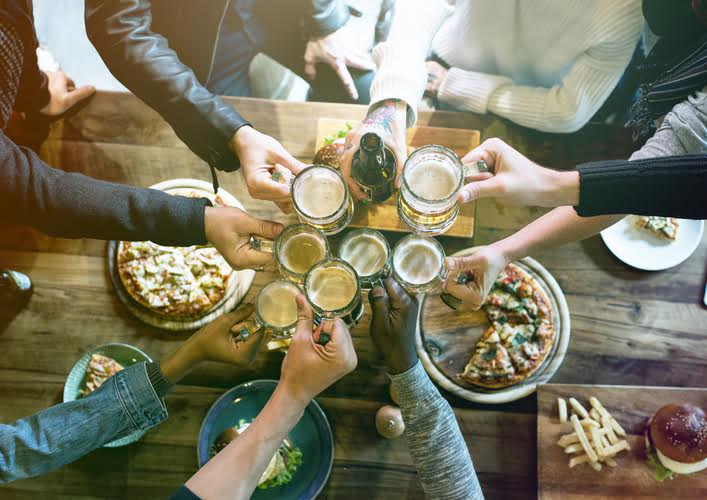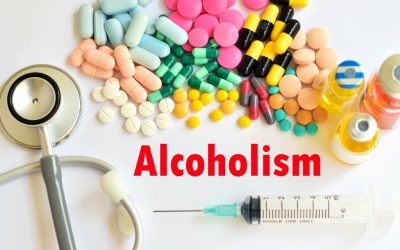Content
Living in a community filled with drinkers could make you want to drink too. Being surrounded by peers or friends that are drinking increases the risk of relapse .

If you haven’t struggled with addiction, it’s hard to comprehend just how strongly substance abuse can hijack the brain, making it extremely difficult to stop using drugs or alcohol. Four studies have evaluated the effect of serotonin blockers–zimelidine, citalopram, and fluoxetine on alcohol consumption in humans, each using a double-blind, placebo-controlled design . These agents produced a decrease in alcohol intake and, in some cases, a significant increase in the number of abstinent days. These effects, however, were found among small samples and were short-lived. Controlled trials in larger dependent populations are needed before serotonin blockers can provide hope as a possible adjunct for relapse prevention. Similar relapse rates for alcohol, nicotine, and heroin addiction suggest that the relapse mechanism for many addictive disorders may share common biochemical, behavioral, or cognitive components . Thus, integrating relapse data for different addictive disorders may provide new perspectives for relapse prevention.
What Are The Stages Of Relapse?
Other risk factors were psychiatric comorbidities, a high score on the HRAR scale, and a diagnosis of alcohol dependence . Scoring systems to predict alcohol relapse after LT such as HRAR and the ARRA were proposed for use, but they have never been validated by well-designed studies. The issues of recidivism and disease recurrence remain a concern in LT for alcoholic liver disease. An abstinence period of at least 6 months before LT is a mandatory selection criterion in most liver transplant centers, but the benefit of such pre-transplant 6 month abstinence remains unclear . Furthermore, there are subsequent reports indicating that an abstinence period of 6 months is not a significant predictive factor for recidivism .

However, there are several useful methods an individual can employ to prevent an alcohol relapse in order to maintain their sobriety. Data obtained from each study was independently extracted by two reviewers (L.C. and A.S.) using a standardized extraction form.
Searching for Alcohol Use Disorder Treatment?
If mental health issues go unaddressed, or if an individual does not know how to properly cope, they can trigger an alcohol or drug relapse. Individuals with alcohol or drug addiction are not used to experiencing psychological issues such as depression or anxiety without using alcohol or drugs as their primary coping mechanism. With proper guidance from a mental health professional, and in some cases with the aid of prescribed psychotropic medications, individuals can live a thriving life with a mental health diagnosis. To avoid chronic https://ecosoberhouse.com/ and learn to manage and cope with your triggers in a healthier way, consider enrolling in an alcohol addiction treatment program or relapse prevention program. Sometimes attempting to avoid triggers at all costs is not the most effective way to maintain sobriety.
The review also adds that, if this fact were more well-known, it could encourage more people struggling with problematic alcohol use to seek professional support and services. Triggers are stimuli that cause you to crave alcohol or drugs, potentially leading to relapse. They can include anything from being around people who abuse alcohol, places that bring back memories of drinking, stressful situations, or even certain foods. If you or a loved one is ready to overcome an alcohol addiction, reach out today.
“I Didn’t Become Addicted- Why Did They?” The Causes of Addiction
The first step is to determine whether you need to go back to rehab. If it was an isolated incident and you’re committed to examining or adjusting your recovery care plan, you may not need to go back to an inpatient facility.
- Some people describe a physiological desire to drink.
- This includes saying they don’t have the time or money even though they know nothing is more important than sobriety.
- Relapse does not always mean a return to alcohol or substance abuse.
- Here are a list of 10 common triggers that contribute to addiction relapse.
- It would be best to look into detox at an inpatient treatment center for additional support andmedicalhelp.
- As a substance abuse treatment facility, Burning Tree Ranch has helped families and chronic relapsers find long term recovery since 1999.
You might have several relapses, whether you have tried to quit substance use on your own or have had treatment. As time goes on, relapses usually occur less often and are shorter. Choosing to participate in a study is an important personal decision. Talk with your doctor and family members or friends about deciding to join a study. To learn more about this study, you or your doctor may contact the study research staff using the contacts provided below. For general information, Learn About Clinical Studies.
Why Honesty in Addiction Recovery is Critical
As a seasoned editor and writer, she has also worked as a clinical editor for online addictions journals and websites, and ghostwritten for numerous medical and addictions professionals. This component happens during treatment and involves taking a detailed family history and examining any history of drug and alcohol use. People who experience anxiety may begin drinking again as a way of avoiding their feelings of nervousness and panic. Relapse is usually triggered by a person, place or thing that reminds a person of alcohol. When the brain processes the memory, it causes cravings for the substance. Some people become so focused on maintaining their loved one’s recovery that they take too much responsibility.
Our long term program, Burning Tree Ranch, uses time and our clinical expertise to remove resistance from treatment. Traditional, 30-day treatment does not work for someone who struggles with chronic relapse.
Excessive eating and poor nutrition in recovery can… Seeing a loved one struggle with an addiction to alcohol is extremely challenging, emotional, and painful. Many are left feeling isolated, helpless, hopeless, and confused; full of questions about what they can do to help their loved one. As with other facets of the recovery process, the fastest and most effective methods for recovering from relapse vary from individual to individual. Preliminary outcome data revealed a decrease in the number of drinks consumed per day as well as in drinking days per week. Forty-seven percent of the clients reported total abstinence over the 3-month follow-up period, and 29 percent reported total abstinence over the entire 6-month follow-up period . Only about 10% of people with an addiction get care for it.

As such, individuals new to sobriety often find lots of time on their hands. When one is bored or feeling isolated, they are left with themselves, and as they say, an addict alone is in bad company. When one is bored or isolated they are left with their own thoughts and emotions, which often do not want to be heard or felt. When a person doesn’t take the time to acknowledge and address the symptoms from emotional and mental relapse, it doesn’t take long to lead down the path to physical relapse. This includes the act of drinking alcohol or using other drugs. The key is to reach out for help if you find yourself in physical relapse immediately in order to stop the vicious cycle of addiction before it is too late. Chronic and excessive alcohol consumption is a major cause of death around the world.
They feel anxious and tremulous if they do not drink. In general, Individuals that have strong cravings tend to have a higher risk of relapse than individuals that do not get cravings. The exact numbers of relapse vary among different studies. You might need to avoid certain situations or people or stay away from a favorite place or activity. If you know you can’t avoid a trigger, bring a friend with you for support. Despite its legal status, alcohol is a dangerous substance. It presents numerous serious effects to those who consume it, including the potential to develop an addiction.
0 Comments